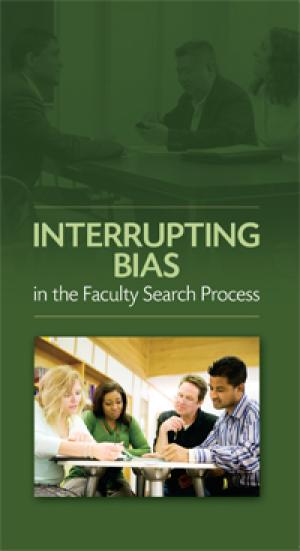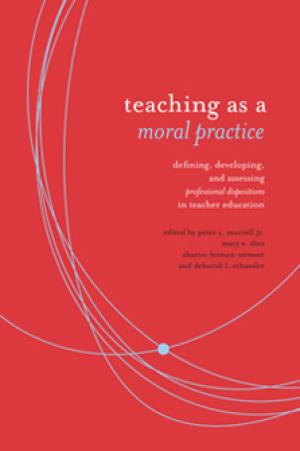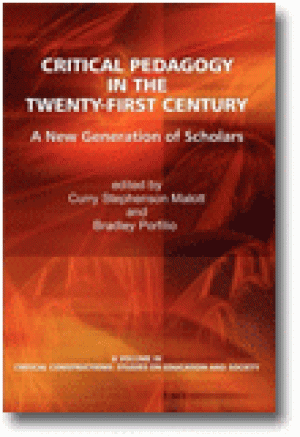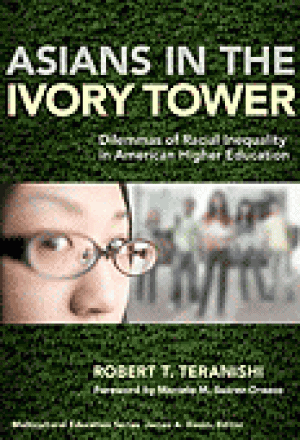Resources

Journal Issue.

A tool to facilitate discussion about diversity in hiring at colleges and universities. The website includes a study guide and order form for a free live action film in which a search committee debates candidate qualifications for an open position.This web site will prepare you to show the film and help your audience to demystify subtle discrimination, examine assumptions, and become change-agents.
In this report, we review social science and library studies literatures on librarian-faculty relations, and present a preliminary sociological analysis of these relations. We find an asymmetrical disconnection between both groups: Librarians and faculty identify a disconnection that keeps the two separated, but only librarians view this disconnection as problematic.
Compared research papers before and after implementation of an inquiry-based library instruction program at the University of New Mexico to asses the program's effectiveness and consider its future development. Discusses increased collaboration between the library and the English department and suggests more training for instructors and greater emphasis on a rhetorical research approach.
New campus-wide initiatives and developing a technology now provide librarians with fresh tools for supporting and assisting faculty as fellow educators. Librarians can participate in instruction activities as collaborators and by acting as teachers to the teaching faculty Librarians can foster this interaction by cooperating in assessment and accreditation processes, and by joining in learning communities and writing programs. This article will explore ways that the librarian can partner in professional development with faculty by participating in curriculum planning and educational assessment.

Sometimes understood as habits of mind, “dispositions” represents a new concept in teacher education. Conversations about professional dispositions in teaching often touch on issues such as attitudes, values, moral commitment, and social justice. Based on the American Association of Colleges for Teacher Education’s Task Force on Teaching as a Moral Community, this book addresses the philosophical grounding for the concept of teacher dispositions and examines thoughtful examples of emerging practice. (From the Publisher)
Spiritual formation is both an opportunity and a challenge for educators in Christian colleges and seminaries. How can students be nurtured and guided in developing spiritually within the curriculum? Drawing on a number of educators, studies, and arguments, this article develops a rationale for engaging in spiritual formation and for the use of practical assignments or "soul projects." A selection of such projects is grouped into genres, followed by a brief exploration of best practices and an evaluation of such assignments.

This book simultaneously provides multiple analyses of critical pedagogy in the twenty-first century while showcasing the scholarship of this new generation of critical scholar-educators. Needless to say, the writers herein represent just a small subset of a much larger movement for critical transformation and a more humane, less Eurocentric, less paternalistic, less homophobic, less patriarchical, less exploitative, and less violent world. This volume highlights the finding that rigorous critical pedagogical approaches to education, while still marginalized in many contexts, are being used in increasingly more classrooms for the benefit of student learning, contributing, however indirectly, to the larger struggle against the barbarism of industrial, neoliberal, militarized destructiveness. The challenge for critical pedagogy in the twenty-first century, from this point of view, includes contributing to the manifestation of a truly global critical pedagogy that is epistemologically democratic and against human suffering and capitalist exploitation. These rigorous, democratic, critical standards for measuring the value of our scholarship, including this volume of essays, should be the same that we use to critique and transform the larger society in which we live and work. (From the Publisher)

This timely and compelling examination of the experience of Asian Americans in higher education explores why and how Asian Americans and Pacific Islanders (AAPIs) are important to our nation's higher education priorities and places the study of AAPI college participation within a broad set of conditions through which all students must navigate as they pursue higher education. Teranishi captures the intersections of individual agency, social conditions, and organizational structures as synergetic forces that result in a range of postsecondary outcomes for subpopulations within the larger body of AAPIs.